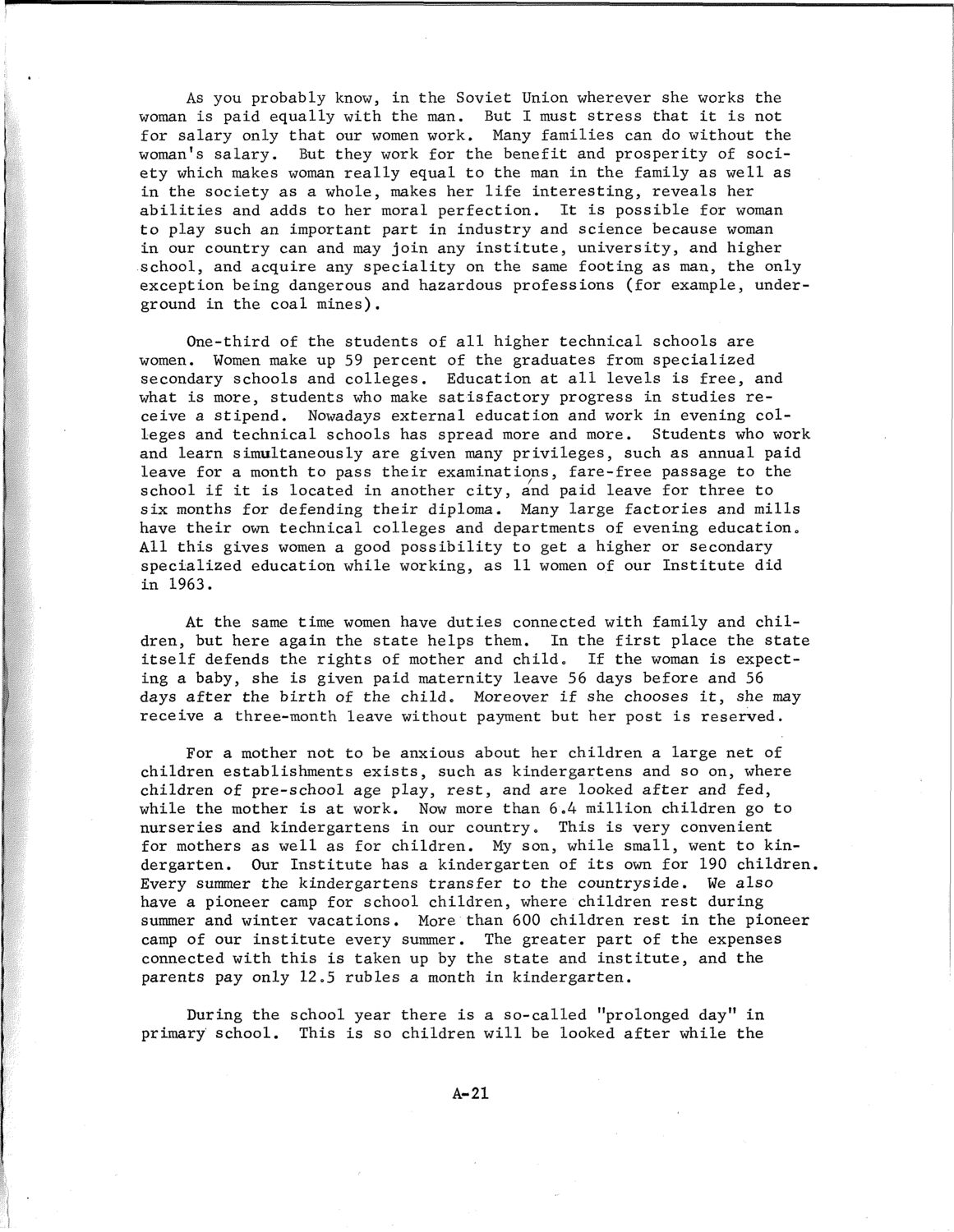| |
| |
Caption: SWE - Proceedings of the First International Conference of Women Engineers and Scientists
This is a reduced-resolution page image for fast online browsing.

EXTRACTED TEXT FROM PAGE:
As you probably know, in the Soviet Union wherever she works the woman is paid equally with the man. But I must stress that it is not for salary only that our women work. Many families can do without the woman's salary. But they work for the benefit and prosperity of society which makes woman really equal to the man in the family as well as in the society as a whole, makes her life interesting, reveals her abilities and adds to her moral perfection. It is possible for woman to play such an important part in industry and science because woman in our country can and may join any institute, university, and higher school, and acquire any speciality on the same footing as man, the only exception being dangerous and hazardous professions (for example, underground in the coal mines). One-third of the students of all higher technical schools are women. Women make up 59 percent of the graduates from specialized secondary schools and colleges. Education at all levels is free, and what is more, students who make satisfactory progress in studies receive a stipend. Nowadays external education and work in evening colleges and technical schools has spread more and more. Students who work and learn simultaneously are given many privileges, such as annual paid leave for a month to pass their examinations, fare-free passage to the school if it is located in another city, and paid leave for three to six months for defending their diploma. Many large factories and mills have their own technical colleges and departments of evening education. All this gives women a good possibility to get a higher or secondary specialized education while working, as 11 women of our Institute did in 1963. At the same time women have duties connected with family and children, but here again the state helps them. In the first place the state itself defends the rights of mother and child. If the woman is expecting a baby, she is given paid maternity leave 56 days before and 56 days after the birth of the child. Moreover if she chooses it, she may receive a three-month leave without payment but her post is reserved. For a mother not to be anxious about her children a large net of children establishments exists, such as kindergartens and so on, where children of pre-school age play, rest, and are looked after and fed, while the mother is at work. Now more than 6.4 million children go to nurseries and kindergartens in our country. This is very convenient for mothers as well as for children. My son, while small, went to kindergarten. Our Institute has a kindergarten of its own for 190 children. Every summer the kindergartens transfer to the countryside. We also have a pioneer camp for school children, where children rest during summer and winter vacations. More than 600 children rest in the pioneer camp of our institute every summer. The greater part of the expenses connected with this is taken up by the state and institute, and the parents pay only 12.5 rubles a month in kindergarten. During the school year there is a so-called "prolonged day" in primary school. This is so children will be looked after while the A-21
| |